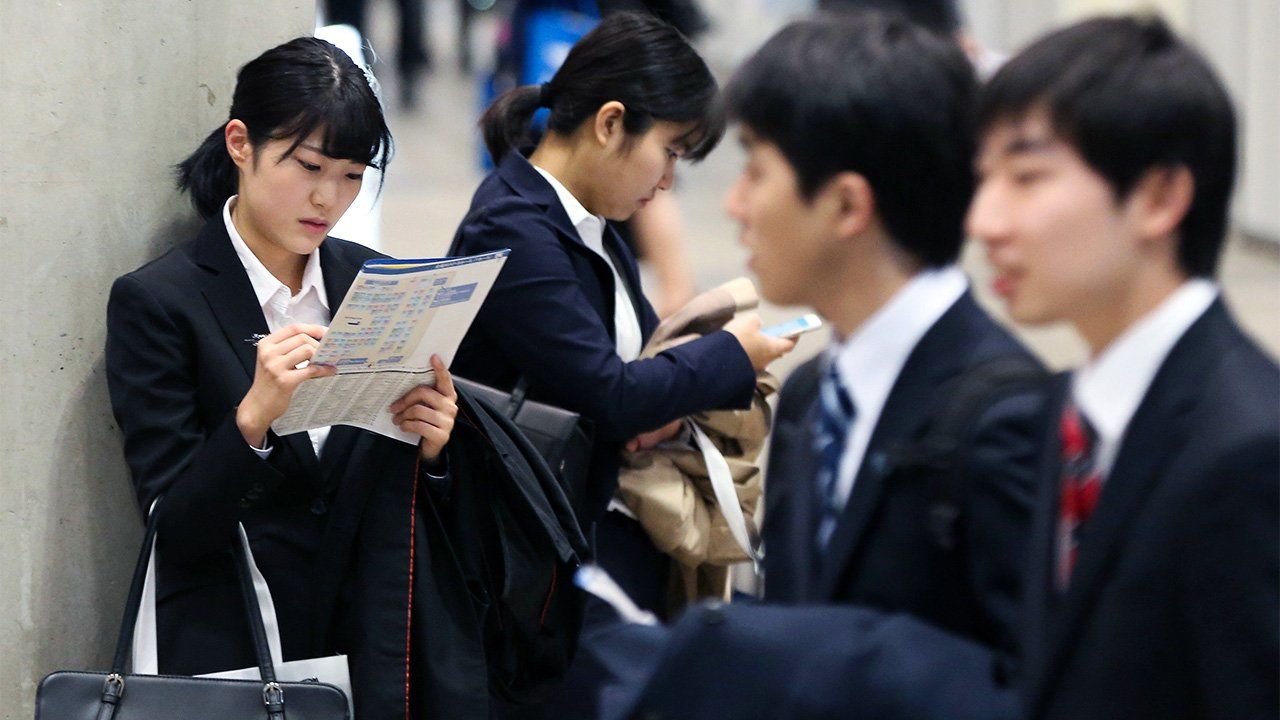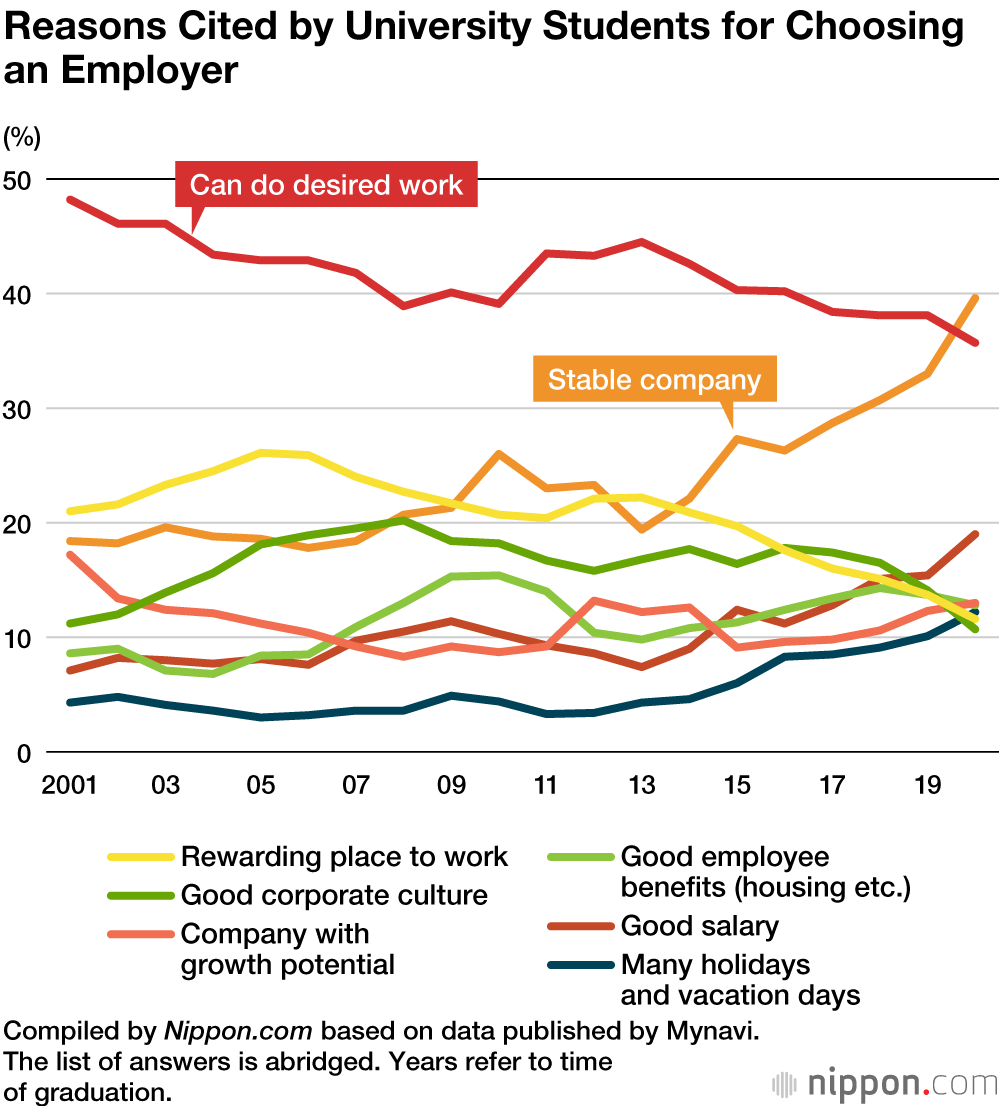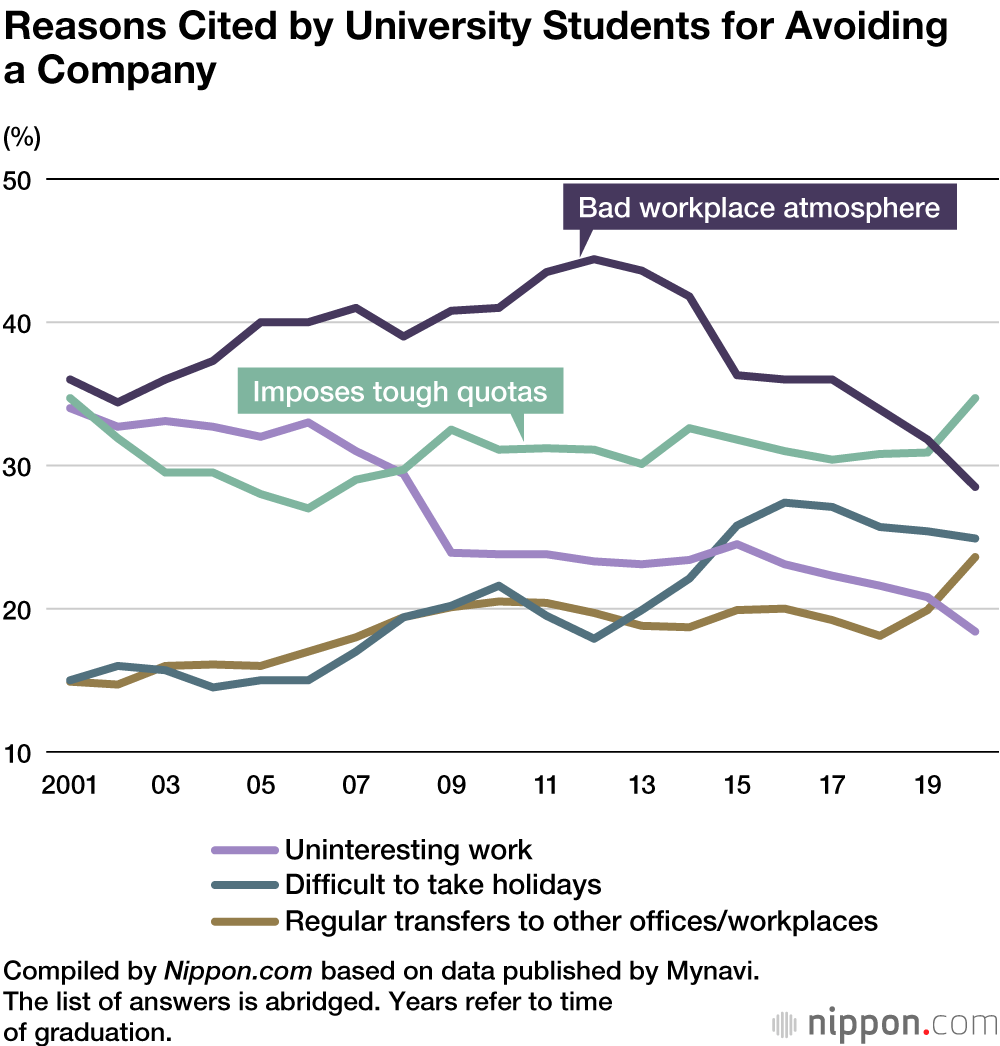
Japanese Job-Seekers Set Stability as Top Priority
Work- English
- 日本語
- 简体字
- 繁體字
- Français
- Español
- العربية
- Русский
Attitudes are changing among university students with regards to employment options. An April survey found that the top criterion among job seekers for choosing a potential employer, cited by 39.6% of the students surveyed, was a company’s “stability.” This is a 6.6 percentage point rise compared to the results of the previous year’s survey, dislodging the factor of “can do desired work,” which had been the most frequently cited reason every year dating back to the survey of 2001 graduates.
Mynavi has been questioning university students on their job-seeking attitudes since its first survey in 1978 of students graduating the following year. The annual poll focuses on the extent to which students seek employment in large corporations and their criteria for choosing an employer. The most recent survey, targeting third-year students set to graduate in March 2020, as well as first-year graduate students, obtained responses from 48,064 individuals.
Other key criteria for choosing an employer that were cited by more students this year than the previous year included “Good salary” (19% of respondents; 3.6 point increase) and “Many holidays and vacation days” (12.2%; 2.1 point increase).
Mynavi noted the trend toward seeking both stability and a good work-life balance.
Students Shun Companies with Work Quotas
Students are also asked about the type of companies that they tend to avoid. In this year’s survey, the least popular sort of company was one that assigns tough quotas to employees. This negative factor was cited by 34.7% of the respondents, a 3.8 point year-on-year increase, surpassing “unpleasant workplace atmosphere” (28.5%; 3.3 point year-on-year decrease), which had been the most frequently cited reason ever since the survey of 2001 graduates.
Other kinds of companies viewed negatively were those that make it difficult to take entitled holidays (24.9%, 0.5 point decrease) and those that regularly transfer employees to other offices or workplaces (23.6%; 3.7 point increase). The fifth-most frequently cited unpopular kind of company was one with “uninteresting work,” cited by 18.4% of the respondents. But this reason fell 2.4 points compared to the previous year’s survey, and the number of respondents choosing it has continued to decline since the survey of 2002 graduates, in which it was the second-most cited.
Mynavi pointed to the growing importance among job-seekers of companies that not only offer rewarding work but also allow employees to work at their own pace in their desired location.
(Translated from Japanese. Banner photo: Scene from a March 1, 2019, job fair held at Makuhari Messe in Chiba City for university students set to graduate and enter the workforce in the spring of 2020. © Jiji.)

